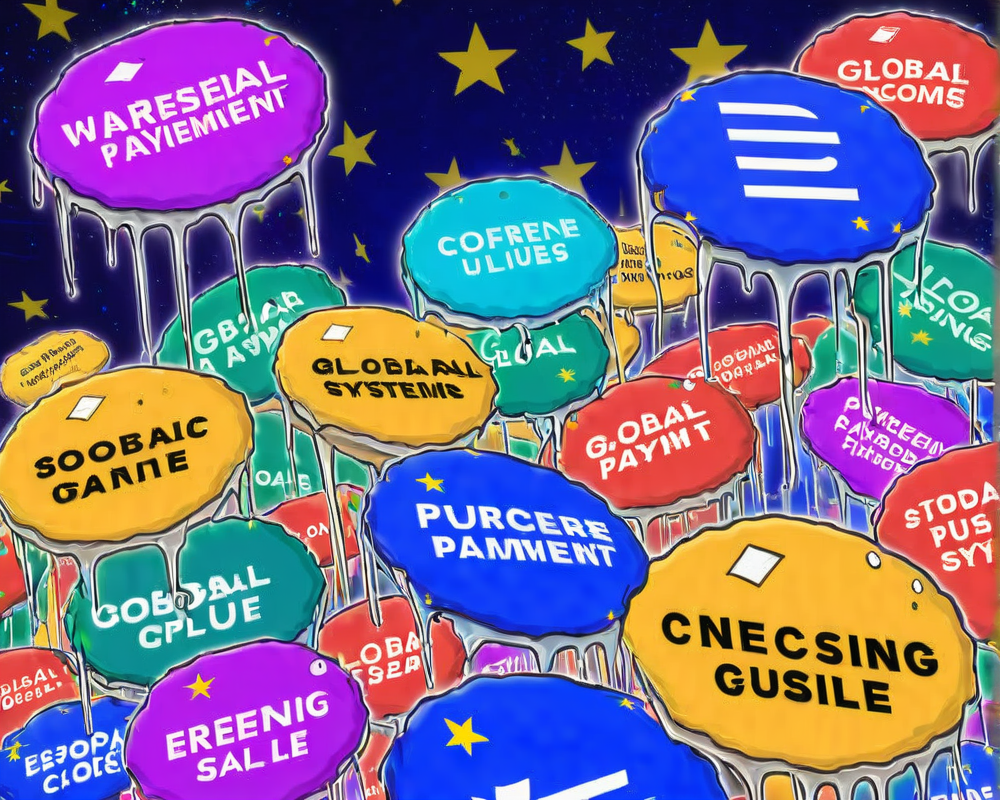A Cautious Take on Global Stablecoins
Benoit Coeure, a prominent member of the European Central Bank (ECB), recently raised eyebrows during a speech at the Joint Conference of the ECB and National Bank of Belgium. With a title like “Crossing the chasm to the retail payments of tomorrow,” one might expect an optimistic outlook. However, Coeure threw a wet blanket on the party, asserting that global stablecoins still need to be rigorously tested. He hinted at substantial risks these digital currencies pose across various policy areas, making it clear that the ECB isn’t about to hand out gold stars to these newcomers anytime soon.
The Incomplete European Payment Puzzle
It’s no secret that the EU has struggled to create a unified, market-driven solution for digital retail payments. Coeure pointed out that while there have been advancements in backend systems like SEPA and the TARGET Instant Payment Settlement (TIPS), the front-end—where punters select and swipe their payment options—still lags behind. This failure could mean the EU is “at risk of losing its economic edge.” Who knew point-of-sale and online payments could hold so much power? Talk about the ‘digital checkout blues’!
The Existential Threat of Fragmentation
Competitive landscapes often resemble the game of Jenga; one wrong move and down it goes! Coeure indicated that national fragmentation in Europe paralyzes competition, much akin to a bad case of stage fright for an aspiring actor. The result? Innovation suffers, and consumer interest morphs into a desperate search for faster, cheaper payment alternatives. Coeure’s sentiment rings true: without a solid framework, Europe’s financial stability could look like a house of cards ready to tumble.
Global Stablecoins: Risks and Reservations
During his speech, Coeure didn’t sugarcoat the potential pitfalls of Europe’s budding romance with global stablecoins. He stated that these currencies could jeopardize legal certainty, investor protection, and compliance with anti-money laundering regulations. In an age where the mantra is to question everything—especially your morning coffee—such concerns are hard to dismiss. Coeure noted that public authorities are prepared to set a high bar for these initiatives, looking out for the well-being of a digital European economy.
Balancing Central Bank and Private Sector Innovation
The duality of central banks and the private sector often resembles a dance; too much lead from either side results in an awkward shuffle. Coeure reminded listeners that while central banks must adapt to new technologies and consumer behaviors, they shouldn’t overshadow the private sector. If they do, Europe risks fostering an environment where innovation stagnates. After all, we want retail payments that are as quick as a cat on a hot tin roof, not some lumbering dinosaur. He also highlighted the ECB’s exploration into central bank digital currencies, which could keep citizens linked to state-backed money—even as physical cash fades into the ether.
The Stinging Response to Libra
Coeure’s cautious stance isn’t coming from nowhere; the ECB’s reluctance is echoed in the fallout from Facebook’s Libra project. The initiative received a frosty reception from EU lawmakers, including warnings from figures like French finance minister Bruno Le Maire. He cautioned that if Libra were to gain traction in Europe, it could endanger the monetary sovereignty of European states. Talk about being the uninvited guest at the party!
Conclusion: A Digital Future Worth Navigating
In conclusion, while technology rolls forward with the promise of streamlined transactions, it’s crucial to build a robust framework that ensures safety and innovation. Europe finds itself at a crossroads, and as Benoit Coeure aptly put it, the journey ahead requires a cautious yet progressive approach to digital payment systems. The stakes are high, and the landscape is complex; the question remains whether Europe can effectively adapt or if it will watch from the sidelines.















+ There are no comments
Add yours